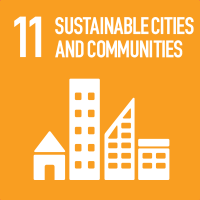Studying at the University of Verona
Here you can find information on the organisational aspects of the Programme, lecture timetables, learning activities and useful contact details for your time at the University, from enrolment to graduation.
Study Plan
This information is intended exclusively for students already enrolled in this course.If you are a new student interested in enrolling, you can find information about the course of study on the course page:
Laurea in Studi strategici per la sicurezza e le politiche internazionali - Enrollment from 2025/2026The Study Plan includes all modules, teaching and learning activities that each student will need to undertake during their time at the University.
Please select your Study Plan based on your enrollment year.
1° Year
| Modules | Credits | TAF | SSD |
|---|
2° Year activated in the A.Y. 2023/2024
| Modules | Credits | TAF | SSD |
|---|
2 modules among the following3° Year activated in the A.Y. 2024/2025
| Modules | Credits | TAF | SSD |
|---|
2 modules among the following| Modules | Credits | TAF | SSD |
|---|
| Modules | Credits | TAF | SSD |
|---|
2 modules among the following| Modules | Credits | TAF | SSD |
|---|
2 modules among the following| Modules | Credits | TAF | SSD |
|---|
Legend | Type of training activity (TTA)
TAF (Type of Educational Activity) All courses and activities are classified into different types of educational activities, indicated by a letter.
Public ethics (2023/2024)
Teaching code
4S000570
Teacher
Coordinator
Credits
6
Language
Italian
Scientific Disciplinary Sector (SSD)
M-FIL/03 - MORAL PHILOSOPHY
Period
Sem. 1A, Sem. 1B
Courses Single
Authorized
Learning objectives
The course aims to offer the conceptual tools to understand ethical questions that our time poses, with particular attention to contemporary transformations of the social ties, the issue of community, the relationship between vulnerability, security and risk in the social dimension of human experience. Students will acquire knowledge of the main themes of public ethics and its contemporary lines of development; will be able to formulate autonomous judgments on the themes of the course; will be able to communicate the topics of the course to specialist and non specialist audiences; will be able to relate ethical issues to operational contexts, in connection with prevention and management of geopolitical, environmental, social, digital and sanitary risk.
Program
Ogni settimana 1.5 milioni di persone nel mondo si spostano verso aree urbane alla ricerca di opportunità e di una vita migliore. La specie umana trova così la propria precipua forma di convivenza nello spazio urbano, che può diventare a un tempo il punto di osservazione privilegiato per le trasformazioni della politica e della società. Prima parte del corso sarà dedicata a indagare le trasformazioni che hanno reso la città nell’antichità il luogo della politica e degli affari pubblici, nella modernità il luogo del lavoro e della produzione, nel contemporaneo il luogo della libertà e del consumo. Intrecciando filosofia morale, filosofia politica e urbanistica, nella seconda parte del corso ci chiederemo se la programmazione urbanistica sia davvero la soluzione per i problemi delle grandi metropoli, e se le impostazioni urbanistiche e architettoniche attualmente in voga sanno adeguare la progettazione alle esigenze della comunità. I casi di 'rigenerazione' urbana presentati nell’ultima parte del corso serviranno a verificare se questi casi correttivi possono aiutare la città a ritrovare la propria misura umana.
Bibliography
Learning assessment procedures
To pass the exam, students must demonstrate that they:
- have an understanding of the principles that orient public ethics in its relationship with contemporaneity and the eminently social dimension of human experience;
- are able to present and discuss the acquired knowledge in a clear and consequential way;
- are able to identify, in the different operational contexts, ethical questions and articulate them on the basis of the acquired knowledge.
Exam language
Italiano (se necessario anche inglese, francese)

